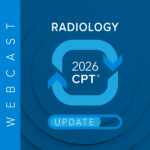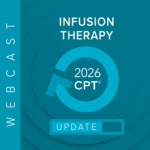The Centers for Medicare & Medicaid Services (CMS) released in its 2025 Outpatient Prospective Payment System (OPPS) Final Rule a new Conditions of Participation (CoPs) for hospitals and Critical Access Hospitals (CAHs) offering obstetrical (OB) services.
This initiative is part of the CMS strategy to improve maternal health outcomes, particularly considering the United States’ ongoing maternal health crisis, which has resulted in some of the highest maternal mortality rates among high-income countries worldwide, disproportionately affecting communities of color.
The proposed CoP generally defines some of the coming provisions that will be expected in the coming document, so hospitals can start preparing.
Organization and Staffing: CMS has finalized requirements ensuring that OB services are well-structured, adhering to nationally recognized standards. The OB care department/unit must integrate with other departments in the facility, and OB patient care units must be supervised by qualified personnel, such as experienced registered nurses, certified midwives, nurse practitioners, or physicians. The granting of OB care privileges must follow written criteria, ensuring that only appropriately credentialed practitioners provide OB services.
Delivery of Services: To ensure the effective and timely treatment of obstetrical cases, CMS requires that facilities maintain essential OB equipment, such as fetal monitors and cardiac equipment. The level of equipment should reflect the facility’s volume and complexity of OB services. CMS recognizes that low-volume facilities may need fewer resources, compared to high-volume ones, allowing for flexibility while maintaining minimum standards. The requirements also include having protocols consistent with evidence-based guidelines for OB emergencies, ensuring comprehensive preparedness.
Staff Training: CMS mandates that hospitals and CAHs develop training policies tailored to the scope of services offered. This training must be evidence-based and informed by the facility’s Quality Assessment and Performance Improvement (QAPI) programs. New staff must receive initial training, and relevant existing staff must complete training every two years. This approach aims to maintain a high level of competence in maternal care delivery across all staff.
Quality Assessment and Performance Improvement (QAPI) Program: CMS is requiring hospitals and CAHs to use their QAPI programs to address health disparities among OB patients. Facilities must analyze data and quality indicators across different subpopulations; measure and track patient outcomes; and prioritize initiatives to reduce disparities. At least one performance improvement project focusing on OB patient outcomes is required annually. Additionally, facilities must incorporate information from Maternal Mortality Review Committees (MMRCs) where available, integrating public data to enhance their QAPI programs.
Enhancements in Emergency Services Readiness: CMS has revised emergency readiness standards, requiring hospitals and CAHs to have provisions aligned with nationally recognized guidelines for treating emergency patients, including pregnant and postpartum women. This includes maintaining essential emergency supplies, such as drugs and equipment necessary for lifesaving procedures. Staff training on these protocols is mandatory, with annual documentation of successful completion.
Discharge Planning Requirements: CMS is recommending adding Transfer Protocols to § 482.43. However, they will be including mandates that hospitals establish comprehensive written policies covering intra-hospital transfers and transfers between facilities. This would be inclusive of hospital inpatients (for example, transfers from the emergency department to inpatient admission, transfers between inpatient units in the same hospital, or transfers between inpatient units at different hospitals). Annual training on these protocols will be included in the emergency readiness standards, as it appears that final determination on this requirement is not yet solidified.
To accommodate feedback and address concerns about the potential burden of these new requirements, CMS is implementing the CoPs in three phases over two years:
- Phase 1 (Six months post-rule effective date): Emergency readiness and transfer protocols.
- Phase 2 (One-year post-rule effective date): Organization, staffing, and delivery of OB services.
- Phase 3 (Two years post-rule effective date): OB staff training and full implementation of QAPI programs for OB services.
These new CoPs reflect the CMS commitment to addressing the maternal health crisis through enhanced quality and safety standards for OB services. By implementing these standards, CMS aims to reduce maternal mortality, improve health equity, and ensure consistent, high-quality care for pregnant, birthing, and postpartum patients across the United States.
Now is the time for hospitals with OB services to start preparing for these standards to ensure they are meeting all the CMS requirements as they are released.
Programming note: (REGISTRATION LINK)
Listen to Tiffany Ferguson report this story live today during Talk Ten Tuesday with Chuck Buck and Dr. Erica Remer.













